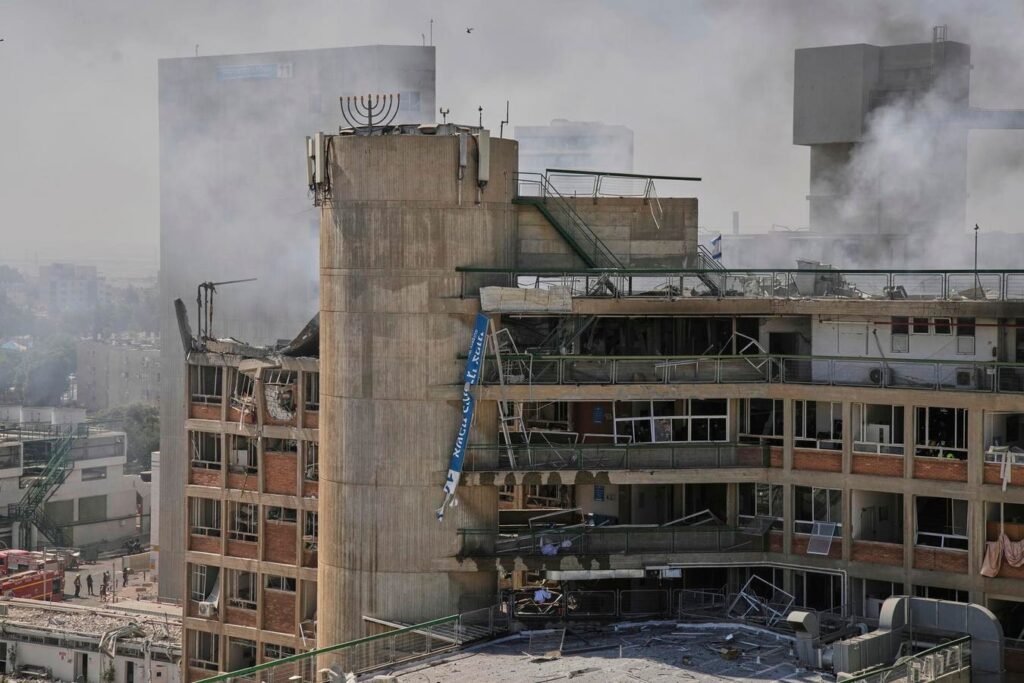
Israeli Prime Minister Benjamin Netanyahu has disclosed that American pilots are actively assisting Israel’s air defenses, marking a significant revelation of U.S. involvement in the ongoing Israel-Iran conflict. This announcement comes as President Donald Trump faces a critical decision within the next two weeks: whether to engage militarily with Iran or pursue diplomatic negotiations.
The revelation was made during an interview with Israeli news outlet Kan, where Netanyahu emphasized Israel’s readiness to strike Iran’s nuclear facilities independently, though he acknowledged the crucial support from U.S. pilots in intercepting drones. This statement provides the most detailed account yet of the U.S. role in the conflict, which has been escalating since Iran launched ballistic missiles against Israel in October.
Background of the Conflict
The conflict between Israel and Iran intensified last week when Israel conducted unilateral strikes on Iranian nuclear sites, resulting in the deaths of several top Iranian generals and nuclear scientists. Netanyahu justified these actions as necessary for Israel’s survival, citing the threat posed by Iran’s nuclear ambitions. In response, Iran launched a series of missile attacks, including one that damaged the Soroka Medical Center in Be’er Sheva, Israel.
According to Israeli Defense Minister Israel Katz, the latest Iranian missile strikes injured 65 people across Israel. Katz has vowed to intensify military actions against Iran, accusing Iranian Supreme Leader Ayatollah Ali Khamenei of war crimes for targeting civilian infrastructure.
U.S. Involvement and Diplomatic Maneuvers
U.S. involvement in the conflict has been a subject of speculation, but Netanyahu’s comments confirm American pilots’ participation in Israel’s air defense efforts. The U.S. has also provided support through air defense systems and naval assets in the region. Meanwhile, President Trump is weighing his options, with White House officials indicating that negotiations with Iran remain a possibility.
Trump’s special envoy to the Middle East, Steve Witkoff, continues to engage with Iranian officials, while U.S. Ambassador to Turkey Tom Barrack has cautioned Hezbollah against entering the conflict. Barrack’s warning reflects the broader geopolitical stakes, as the U.S. seeks to prevent the conflict from expanding beyond the current belligerents.
International Reactions and Future Implications
Iran has issued stern warnings against third-party involvement, implicitly targeting the U.S., and threatening immediate retaliation. Iranian state media reported that the missile targeting the Soroka Medical Center was intended for a nearby Israeli military intelligence base, underscoring the precision and intent behind Iran’s military actions.
The U.S. State Department has begun evacuating nonessential diplomats from Israel, highlighting the escalating risk of further conflict. As tensions mount, the international community remains on edge, with potential ramifications for regional stability and global security.
Expert Opinions and Historical Context
Experts suggest that the current conflict echoes past confrontations in the Middle East, where proxy battles and direct military engagements have shaped the geopolitical landscape. The involvement of U.S. pilots in Israel’s defense represents a significant escalation, reminiscent of past U.S. military interventions in the region.
According to military analyst Dr. Rachel Stein, “The U.S. support for Israel is not just about defense; it’s a strategic move to maintain influence in a volatile region. This involvement could either deter further aggression or provoke a larger conflict, depending on how Iran perceives the threat.”
Looking Ahead: Potential Outcomes
As President Trump deliberates on his next steps, the possibility of a military strike against Iran’s nuclear facilities looms large. However, diplomatic channels remain open, with Iranian Foreign Minister Abbas Araghchi expressing a willingness to resume talks if Israel halts its military actions.
The situation remains fluid, with potential for either escalation or de-escalation in the coming weeks. The international community will be closely watching President Trump’s decision, which could have far-reaching consequences for U.S.-Iran relations and the broader Middle East.
In conclusion, the involvement of American pilots in Israel’s defense marks a pivotal moment in the Israel-Iran conflict, with significant implications for regional stability and international diplomacy. As the world waits for President Trump’s decision, the stakes have never been higher.







